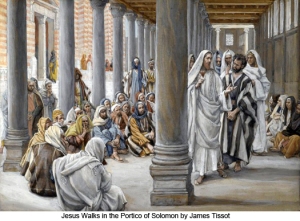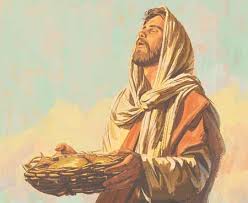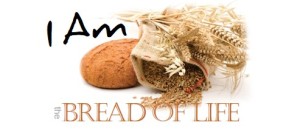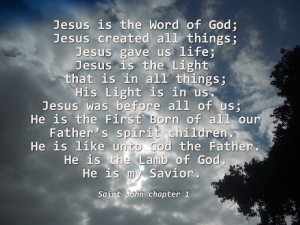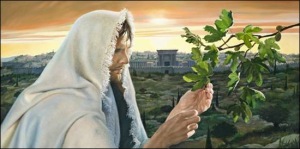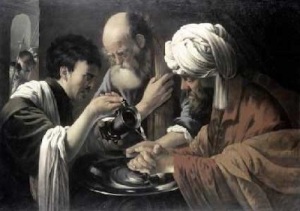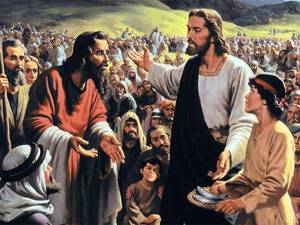The Gospel According to St Mark: Mark Chapter Ten: Read here: https://www.lds.org/scriptures/nt/mark/10?lang=eng
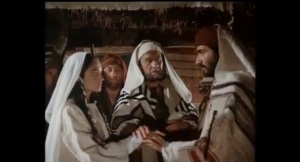
The Savior Speaks on Marriage and Divorce: Read Mark 10: 1-12:
Even in that day, and also in Moses’s day, divorce was a problem. “For the hardness of your hearts,” the Lord said, “Moses allowed you to write a bill of divorcement.”
“For the hardness of your hearts.” Isn’t that the reason people still divorce today? If we enter into marriage, shouldn’t we do so because we love the other person and want to make him or her happy? Don’t we covenant to love, honor, and cherish one another?
If we forget that covenant, if we are not as vigilant in nourishing our relationship with our spouse, as we are our relationship with the Lord, our hearts will be hardened and our love diminished. We are commanded to love our spouses even as the Lord loved the Church and gave His life for it (see Ephesians 5:25). We are commanded to love the Lord with all our heart (see Matthew 22:37); we are also commanded to love our spouse with all our heart.
“Thou shalt love thy wife with all thy heart, and shalt cleave unto her and none else” (Doctrine and Covenants 42:22).
What does it mean to cleave unto our spouses? What does it mean to be one flesh? Aren’t we to be one in unity and purpose? Aren’t we to share our intimate selves, bodily and spiritually, only with each other, and not outside our marriage covenant? If we are adulterous, isn’t that a mockery of the commandment to be one flesh, because we care not for the well-being of the other person or our spouse, but only our self-gratification.
‘And he arose from thence, and cometh into the coasts of Judæa by the farther side of Jordan: and the people resort unto him again; and, as he was wont, he taught them again. And the Pharisees came to him, and asked him’ a question ( vs. 1-2).
Jesus so wanted to teach the people; and the Pharisees also wanted to interrupt Him. They didn’t want Him to gain any more followers.
‘And the Pharisees came to him, and asked him,
“Is it lawful for a man to put away his wife?”
tempting him.
And he answered and said unto them,
“What did Moses command you?”
‘And they said,
“Moses suffered to write a bill of divorcement, and to put her away.”
‘And Jesus answered and said unto them,
“For the hardness of your heart he wrote you this precept. But from the beginning of the creation God made them male and female. For this cause shall a man leave his father and mother, and cleave to his wife; And they twain shall be one flesh: so then they are no more twain, but one flesh. What therefore God hath joined together, let not man put asunder.”
‘And in the house his disciples asked him again of the same matter. And he saith unto them,
“Whosoever shall put away his wife, and marry another, committeth adultery against her. And if a woman shall put away her husband, and be married to another, she committeth adultery”’ (vs. 2-16).
Jesus Loves and Blesses Little Children: Read Mark 10:13-16.
Isn’t it interesting that this passage follows the passage on marriage? What does that mean for us?
‘And they brought young children to him, that he should touch them: and his disciples rebuked those that brought them. But when Jesus saw it, he was much displeased, and said unto them,
“Suffer the little children to come unto me, and forbid them not: for of such is the kingdom of God. Verily I say unto you, Whosoever shall not receive the kingdom of God as a little child, he shall not enter therein.”
‘And he took them up in his arms, put his hands upon them, and blessed them’ (vs. 13-16).
Will We Allow Worldly Wealth to Keep Us from Heaven: Read Mark 10: 17-27.
Here we again read of the young man that wants to inherit eternal life. He said he had kept the commandments from his youth up.
‘Then Jesus beholding him loved him, and said unto him,
“One thing thou lackest: go thy way, sell whatsoever thou hast, and give to the poor, and thou shalt have treasure in heaven: and come, take up the cross, and follow me.”
‘And he was sad at that saying, and went away grieved: for he had great possessions’ (vs. 21-22).
What do we hold onto that makes it difficult for us to take up the cross and follow Jesus? We can only let go of that thing as we turn to Him in faith, trusting Him; and, we should begin now.
“With men it is impossible, but not with God: for with God all things are possible” (vs. 27).
“With men that trust in riches, it is impossible; but not impossible with men who trust in God and leave all for my sake, for with such all these things are possible (JST Mark 10:26).
‘Then Peter began to say unto him,
“Lo, we have left all, and have followed thee.”
‘And Jesus answered and said,
“Verily I say unto you, There is no man that hath left house, or brethren, or sisters, or father, or mother, or wife, or children, or lands, for my sake, and the gospel’s, But he shall receive an hundredfold now in this time, houses, and brethren, and sisters, and mothers, and children, and lands, with persecutions; and in the world to come eternal life.
“But many that are first shall be last; and the last first” (vs. 28-31).
“But there are many who make themselves first, that shall be last, and the last first. This he said, rebuking Peter (JST Mark 10:30-31).
Was Jesus displeased with Peter’s statement? Was it boastful? Had Peter not yet left all to follow Jesus? Don’t all of us hold on to certain weaknesses or favorite shortcomings? Change is difficult.
Jesus beheld the young man with love. He’d kept so many essential commandments for His youth up. When Jesus asks a little more of us, or the Spirit prompts us to do a little better, do we listen? Do we follow? Or are we afraid to let go of our past and present selves, and step further into the light? Do we turn away sorrowfully? Do we grieve the Spirit?
Jesus Again Tells of His Death and Resurrection: Read Mark 10:32-34.
His disciples were both amazed and afraid. Do these emotions keep us from understanding?
‘And they were in the way going up to Jerusalem; and Jesus went before them: and they were amazed; and as they followed, they were afraid. And he took again the twelve, and began to tell them what things should happen unto him, Saying,
“Behold, we go up to Jerusalem; and the Son of man shall be delivered unto the chief priests, and unto the scribes; and they shall condemn him to death, and shall deliver him to the Gentiles: And they shall mock him, and shall scourge him, and shall spit upon him, and shall kill him: and the third day he shall rise again” (vs. 32-34).
Who Will Be Greatest: Read Mark 10:35-44:
Here we again read the account of James and John desiring to sit on Jesus’s right hand and His left hand in His glory (see vs. 37). It was improper of them to ask for such a thing. Jesus said,
“But to sit on my right hand and on my left hand is not mine to give; but it shall be given to them for whom it is prepared” (vs. 40).
Jesus used this situation as a springboard to teach all of the apostles an important truth. He didn’t want the ten to feel displeased with the other two (see vs. 41).
‘But Jesus called them to him, and saith unto them,
“Ye know that they which are accounted to rule over the Gentiles exercise lordship over them; and their great ones exercise authority upon them. But so shall it not be among you: but whosoever will be great among you, shall be your minister: And whosoever of you will be the chiefest, shall be servant of all. For even the Son of man came not to be ministered unto, but to minister, and to give his life a ransom for many” (vs. 42-45).
Jesus Healed Blind Bartimæus: Read Mark 10:46-52:
‘And they came to Jericho: and as he went out of Jericho with his disciples and a great number of people, blind Bartimæus, the son of Timæus, sat by the highway side begging. And when he heard that it was Jesus of Nazareth, he began to cry out, and say,
“Jesus, thou Son of David, have mercy on me.”
‘And many charged him that he should hold his peace: but he cried the more a great deal,
“Thou Son of David, have mercy on me.”
‘And Jesus stood still, and commanded him to be called. And they call the blind man, saying unto him,
“Be of good comfort, rise; he calleth thee.”
‘And he, casting away his garment, rose, and came to Jesus. And Jesus answered and said unto him,
“What wilt thou that I should do unto thee?”
‘The blind man said unto him,
“Lord, that I might receive my sight.”
‘And Jesus said unto him,
“Go thy way; thy faith hath made thee whole.”
‘And immediately he received his sight, and followed Jesus in the way.’
The Lord is pleased when we call after Him. He loves us all, and He will not turn away those who humbly seek Him.
